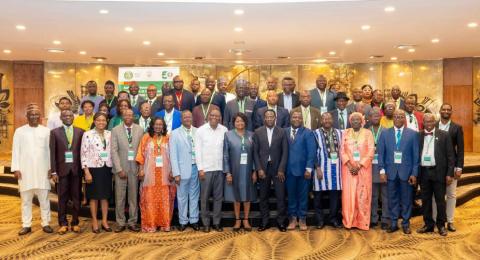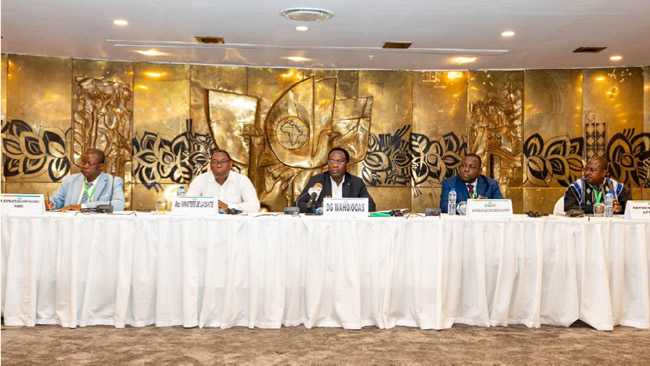
The West African Health Organisation (WAHO), in collaboration with national health training institutions, accreditation bodies and regional technical partners, is organising a regional workshop to review, finalise and harmonise the Field Epidemiology Training Programme (FETP) in West Africa from 9 to 14 June 2025 at the Hôtel 2 Février in Lomé (Togo).
This initiative is part of WAHO's vision to provide the region with a competency-based training curricula at three levels (Basic, Intermediate and Advance) aligned with international standards, with a view to enhancing the quality, uniformity and recognition of the field epidemiology training in ECOWAS Member States.
Delivering the official opening address on behalf of Togo's Minister of Health and Public Hygiene, Professor Tchin Darre, the Secretary General of the Ministry of Health and Public Hygiene, Mr Kokou Wotobe, welcomed the participants and expressed the government's satisfaction at hosting this strategic meeting. He recalled the issues involved in preparing human resources capable of responding effectively to current health challenges, while stressing the importance of training in field epidemiology as a means of strengthening public health systems. He also reaffirmed the Togolese authorities' commitment to supporting all regional initiatives aimed at improving health resilience in the sub-region.

In his welcome address, the Director General of WAHO, Dr Melchior Athanase J. C. Aïssi, presented a detailed analysis of the persistent challenges in terms of human resources for health in West Africa. In particular, he mentioned that the average density of health professionals in the region remains well below the recommended threshold. To address this, he highlighted a number of WAHO initiatives: the harmonization of 54 training curricula, the development of manuals for training community health workers and trainers, the provision of scholarships, and the launch of a regional programme mobilising medical experts from the diaspora. He called on participants to produce a harmonised and robust training curricula capable of accelerating the development of skills in field epidemiology and strengthening regional health integration.
The technical partners' representative, Dr Seogo Hamadou (AFENET representative), on behalf of all the partners, welcomed this collective initiative and emphasised the relevance of the workshop's theme in a context where health threats are cross-border. He reiterated the partners' support for WAHO and the Member States in the sustainable implementation of quality training adapted to local needs and meeting international standards.
Other speakers included the President of the Regional Council for Health Professionals Education (RCHPE), Professor Koffi Balogou, and the representative of the deans of health science faculties, Professor Ulrich Vodouhe. In their messages, they all emphasised the need to harmonize training standards to guarantee excellence, professional mobility and mutual recognition of certificates and their equivalences within the ECOWAS region.
For several years now, WAHO, in collaboration with national institutions and technical partners, has been committed to harmonising health training programmes, with a view to guaranteeing common quality standards, encouraging the mobility of professionals and promoting the mutual transfer of skills and recognition of certificates and their equivalences within the ECOWAS region.
The Lomé workshop is part of this process. Its aim is to provide the region with a harmonized, competency-based programme for training in field epidemiology (FETP), intended to serve as a common reference in the West African region and beyond.
